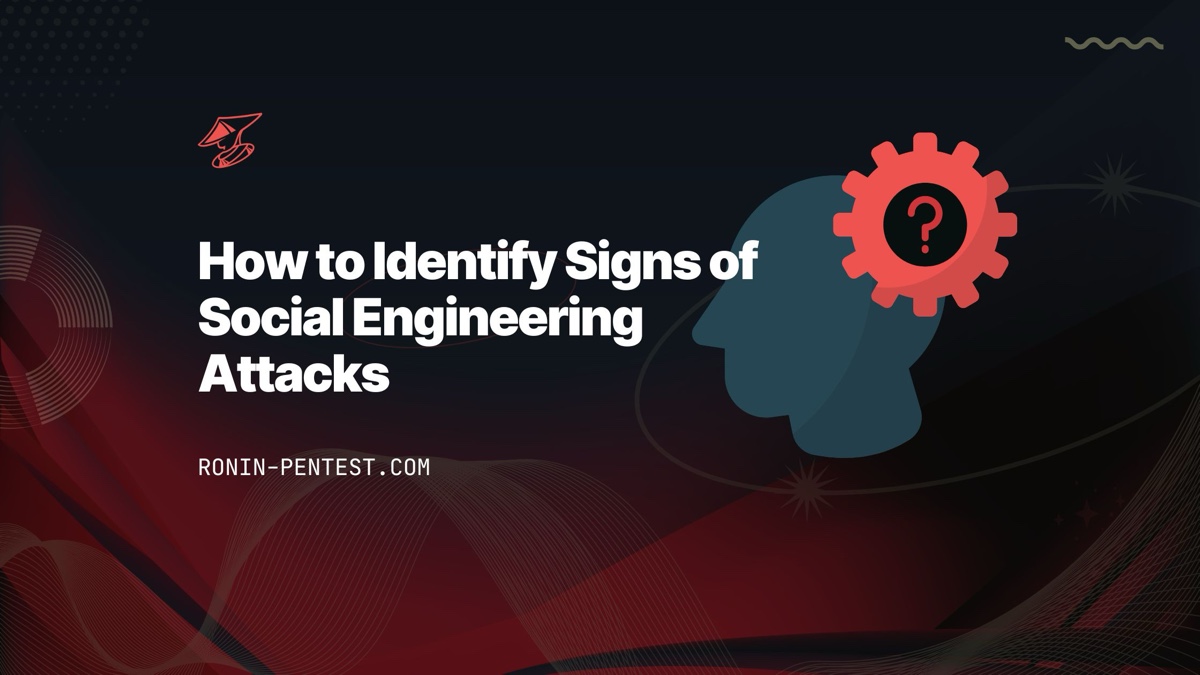Unmasking Deception: How to Identify Signs of Social Engineering Attacks
by Ben Brown | 06/03/2024

by Ben Brown | 06/03/2024

In the digital age, where information flows freely and connections are made in an instant, the risk of social engineering attacks has escalated dramatically. These insidious tactics rely on human error rather than technological vulnerabilities, making them particularly difficult to guard against. For businesses, understanding the nuances of these attacks is critical to ensure the safety of sensitive data and maintain the trust of stakeholders.
Social engineering is a term that encapsulates a broad range of malicious activities accomplished through human interactions. It involves manipulating individuals into breaking normal security procedures and best practices to gain access to systems, networks, or physical locations, or for financial gain. Typically, these attacks prey on human psychology and susceptibilities, such as the tendency to trust others and the fear of getting into trouble.
One of the most telling signs of a social engineering attack is an unexpected request for confidential information. Whether it comes via email, phone call, or even through social media, any unsolicited request should be treated with a high degree of suspicion. Attackers often pose as trusted figures such as bank officials, IT support, or even colleagues to elicit sensitive information that could be used for malicious purposes.
A hallmark of many social engineering attempts is the creation of a false sense of urgency. The attacker will often insist that immediate action is necessary to prevent a dire consequence. For instance, they might claim that your account will be suspended or compromised if you do not act swiftly. This tactic is designed to rush the victim into making a hasty decision without properly considering the legitimacy of the request.
If an offer seems too good to be true, it probably is. Social engineers often use enticing offers—such as a large sum of money in exchange for a small fee—to lure victims into providing personal information or making financial commitments. These scenarios invariably involve some form of advance payment or confidential data exchange before the promised benefit is delivered, which, of course, never happens.
Discrepancies in the way communication is handled can often alert you to a potential social engineering attack. This might include unexpected changes in email addresses, phone numbers, or even the style of writing. If a message lacks personalisation or contains odd syntax and spelling errors, it might be the work of an attacker. Especially be wary of communications that differ from the normal procedures or use different platforms unexpectedly.
Protecting against social engineering requires a blend of robust security practices and continuous education. Employees should be trained to recognise the signs of these attacks and understand the correct protocols for handling suspicious interactions. Regular updates and refreshers on the latest social engineering tactics will strengthen your team's defence against these deceptive strategies.
Verification is a simple yet effective tool in your arsenal. Always verify requests for sensitive information directly through established, secure channels—never through the contact details provided in a suspicious message. Additionally, fostering an organisational culture that encourages questioning and double-checking can be a powerful deterrent against social engineering.
As we navigate an increasingly interconnected world, the sophistication of social engineering attacks continues to grow. Awareness and education are your best defence against these manipulative tactics. By understanding the signs and encouraging a culture of security within your organisation, you can protect your valuable data and systems from these deceptive threats.
At Ronin Pentest, we understand the critical nature of cybersecurity and offer comprehensive scanning services designed to identify vulnerabilities before they can be exploited. Our expert team is dedicated to safeguarding your digital landscape, ensuring your business remains secure in the face of evolving cyber threats. For more information on how our services can help protect your business, visit our website or contact us today.
Start scanning your projects for free. You will get a free breakdown of your security status. Start securing your future now.
Get started